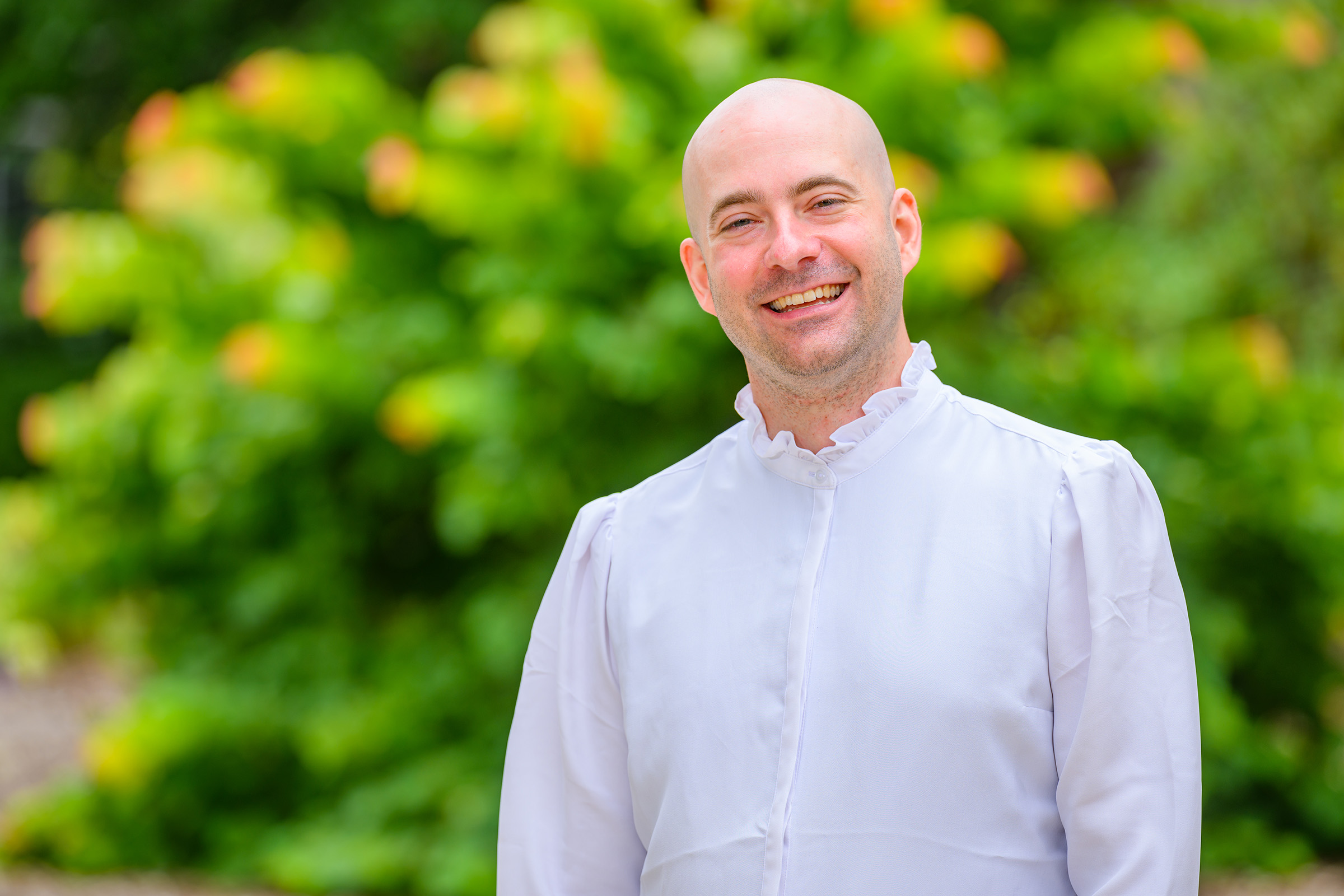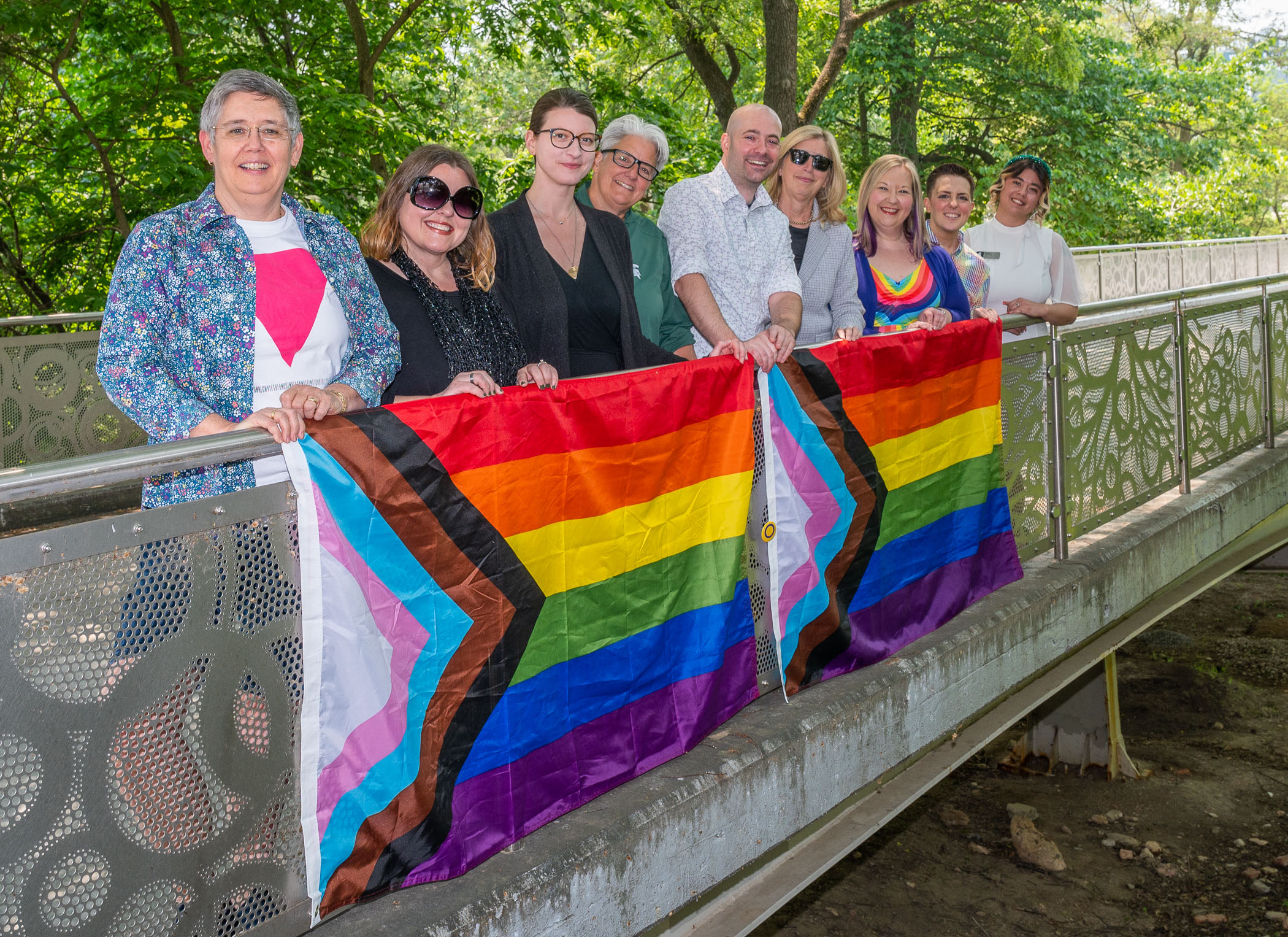Pat Arnold is an academic specialist in the Center for Gender in Global Context and the Women’s and Gender Studies program at Michigan State University. In this role, they serve as the academic adviser for all undergraduate and graduate students in GenCen programs and also coordinate student internships, assist in curriculum development and teach WGS courses.
My professional start to queer education and advocacy was in my first teaching position at the University of Nebraska’s rural campus. Partnering with the small but vibrant LGBTQ student and faculty community, I created and taught the university’s first LGBTQ studies course. I also worked with a close colleague, Lorna Bracewell, to obtain grants to fund a major LGBTQ studies conference with a focus on transgender health and policy. This work brought visibility to these communities and gave impetus to change at the university — and within the next year, the university had adopted some of the key recommendations stemming from the conference, including plans to implement gender-neutral and accessible restrooms in future construction and to create an LGBTQ coordinator staff role.
I brought this same community-building mindset to my role at Michigan State University and the Center for Gender in Global Context, where I am entering my fifth year as an adviser, instructor and curriculum development specialist for the Women’s and Gender Studies and LGBTQ and Sexuality Studies programs. I’ve been privileged to be a part of what will hopefully be further positive institutional change that supports LGBTQIA2S+ students, faculty and staff here, including improvement to the LGBTQ studies minor that has really blossomed in interest in the past few years. Students across programs increasingly bring to our program a passion for working with and for LGBTQIA2S+ communities across fields like medicine, law, psychology and education — and there’s a huge need for this.
It is estimated now that almost 20% of Generation Z identifies as LGBT. Yet, there’s still underrepresentation of these communities across fields. For instance, studies have found that, a decade ago, the average time medical students spent learning about LGBTQ patients in their programs was just five hours, and medical students today continue to lack familiarity in caring for these patients, particularly regarding transgender and intersex health. It isn’t an exaggeration to say that pre-med students at MSU graduating with our LGBTQ and Sexuality Studies minor will already know more about these communities and their diverse health needs than a vast portion of the health care workforce. It is exciting to think how much good they will do in their careers as a result of this competence and compassion they carry.
Some of our research over the past few years also has focused on how Diversity, Equity and Inclusion-focused courses like LGBTQ studies broadly impact students themselves. We’ve found that students who take these kinds of courses end up with a greater sense of belonging at the university, which is key to mental health as much as academic success. They see themselves represented in the curriculum, and they see their communities treated as important for education, research and advocacy. I am excited to see how programs like ours, as well as the amazing Department of African American and African Studies, American Indian and Indigenous Studies and other programs, can continue to fuse academics and community for students.
The community of LGBTQIA2S+ faculty and staff expertise on campus is also a strength we have, with an increasing number of faculty who specialize in these areas. Yet, the students we work with are often two steps ahead — they are the ones teaching me and other instructors about more nuanced identities, such as agender experience or the ace spectrum, and they are the ones constantly introducing us to new queer media and culture. It is such a privilege to work with these students who teach us as much as we teach them, and it creates a classroom space that is truly inclusive and collaborative.
With new directors joining the Center for Gender in Global Context, the vision for the LGBTQ and Sexuality Studies minor remains ambitious. We strive to create the most inclusive program possible, with a unique focus on global LGBTQIA2S+ identities and experiences, applied learning through internships in law, health and the arts and a breadth of course offerings across fields. I definitely foresee us creating more courses (a transgender studies course would be amazing), more LGBTQIA2S+ communities-focused education abroad options like our Sexual Politics in Amsterdam program and more internship opportunities with both domestic and international partners.
But the focus is still on student success and growth. Looking back, the most rewarding part of my career is seeing my first students change the world. Some are now endocrinologists in residency working in gender-affirming care, practicing attorneys who do pro bono work for LGBTQIA2S+ community centers assisting with legal name and gender identity changes, passionate artists, and inclusive K-12 teachers. I can’t wait to see what our current students in the LGBTQ and Sexuality Studies program do in the next decade — and that excitement is absolutely what keeps me coming to work.
MSU is committed to uplifting and supporting our LGBTQIA2S+ Spartans. Our community is coming together to support the Gender and Sexuality Campus Center’s Unconditional Love Fund, which provides flexible assistance to students during times of need.

